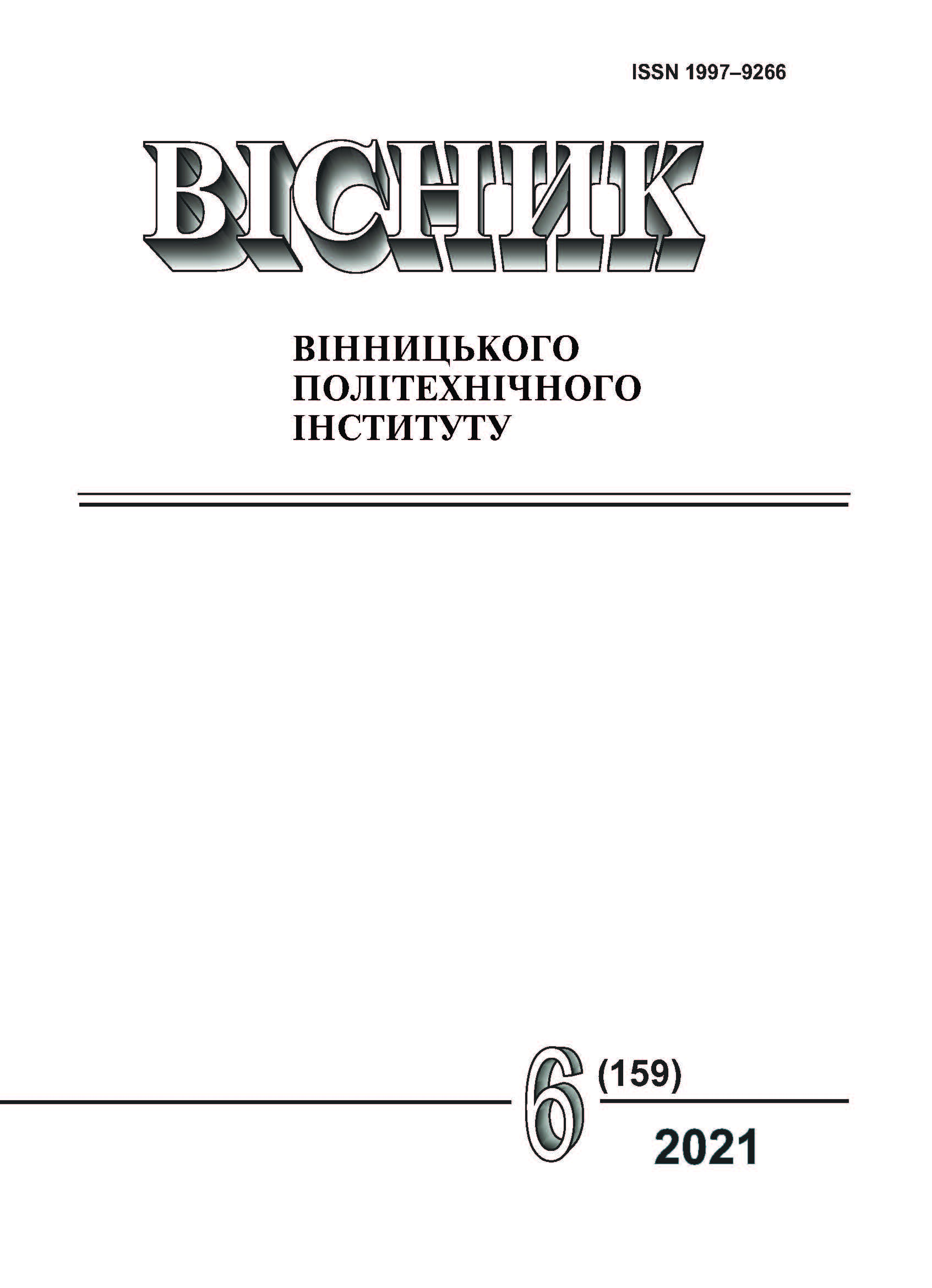General Framework for Ensuring Indicators of Reliable Power Supply in Local Decentralized Power Systems
DOI:
https://doi.org/10.31649/1997-9266-2021-159-6-88-92Keywords:
balance of electrical energy, decentralized power systems, alternative power sources, control algorithm, reliability of power supplyAbstract
There has been carried out the analysis of current trends in the development of distributed generation systems, a general approach to ensuring reliable and stable operation of decentralized energy systems based on renewable energy sources, taking into account the capabilities of energy storage systems and climate forecasting generation. Based on the analysis of the peculiarities of the technological process of electricity generation by alternative power sources inherent in the Ukrainian realities, their classification is carried out on the basis of controllability and predictability. On the basis of the specified classification the generalized approach to construction of the combined local power system which would meet requirements of reliability of power consumption of consumers is offered. The conditional division of the elements of the local energy system into information-logical components and technological subsystems is proposed. Information and technological connections between the elements of the local energy system are determined. Preliminary analysis of shunting capabilities of available capacities of alternative power sources is carried out. Based on the analysis, it is proposed to use the method of combining schedules of generation and consumption of electricity for further formation to form a graph of the mismatch between the balance of consumed and produced electricity. It is proposed to use the graph of mismatch of consumed and generated capacity as a mathematical function of control of the process of generation and consumption of electricity in local electrical networks. It is pointed out the need to apply regulatory means not only for generation facilities, but also for consumers and energy storage systems in order to eliminate inconsistencies in the balances of produced and consumed electricity.
References
Офіційний сайт НЕК «Укренерго». 13–19вересня 2021 р. [Електронний ресурс]. Режим доступу: https://ua.energy/robotaips/robota-energosystemy-13-19-veresnya-2021-roku/ .
Bundesministerium fur Wirtschaft und Klimaschutz. [Електронний ресурс]. Режим доступу: https://www.bmwi.de/Redaktion/DE/Dossier/erneuerbare-energien.html .
Monitoring bericht 2020 Monitoringbericht gemäß, § 63 Abs. 3 i. V. m. § 35 EnWG und § 48 Abs. 3 i. V. m. § 53 Abs. 3 GWB Stand: 1. März 2021.
EES EAEC мировая энергетика. [Электронный ресурс]. Режим доступа: https://www.eeseaec.org/energetika-regionov-mira.
Верховна Рада України, Закон України «Про ринок електричної енергії,» Відомості Верховної Ради (ВВР), 2017, № 27-28, ст. 312. [Електронний ресурс]. Режим доступу: https://zakon.rada.gov.ua/laws/show/2019-19#Text .
Н. Є. Стрельбіцька, «Лібералізація оптового ринку електроенергетики України: перші наслідки,» Бізнес Інформ, № 4, с. 136-139, 2014.
А. М.Чернюк, І. Г. Кирисов, і Ю. О. Черевик, «Аналіз перспектив розвитку систем розподіленої генерації електроенергії в Україні,» наук. журнал «Вчені записки ТНУ імені В.І. Вернадського. Серія: Технічні науки», т. 32 (71), № 3, с. 239-247, 2021.
А. М. Чернюк, І. Г. Кирисов, і Є. І. Качанов, «Засоби забезпечення процесу генерації та споживання електричної енергії в електроенергетичних системах з розподіленою генерацією з врахуванням фактора невизначеності погодних та кліматичних умов,» Вісник НТУ «ХПІ» Серія: Енергетика: надійність та енергоефективність, № 1 (1), с. 95-99, 2020.
Energy Vault. Enabling a Renewable World. [Electronic resource]. Available: https://www.energyvault.com/ .
Ю. А. Веремійчук, В. П. Опришко, І. В. Притискач, і О. С. Ярмолюк, Оптимізація функціонування інтегрованих систем енергозабезпечення споживачів. Київ, Україна: Вид. дім «Кий», 2020, 186 с.
Downloads
-
PDF (Українська)
Downloads: 191
Published
How to Cite
Issue
Section
License

This work is licensed under a Creative Commons Attribution 4.0 International License.
Authors who publish with this journal agree to the following terms:
- Authors retain copyright and grant the journal right of first publication.
- Authors are able to enter into separate, additional contractual arrangements for the non-exclusive distribution of the journal's published version of the work (e.g., post it to an institutional repository or publish it in a book), with an acknowledgment of its initial publication in this journal.
- Authors are permitted and encouraged to post their work online (e.g., in institutional repositories or on their website) prior to and during the submission process, as it can lead to productive exchanges, as well as earlier and greater citation of published work (See The Effect of Open Access).





